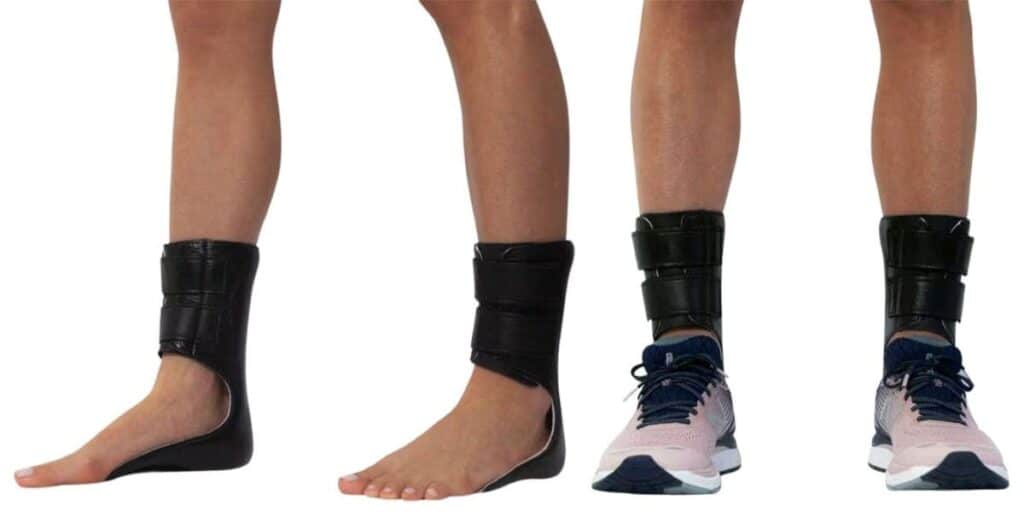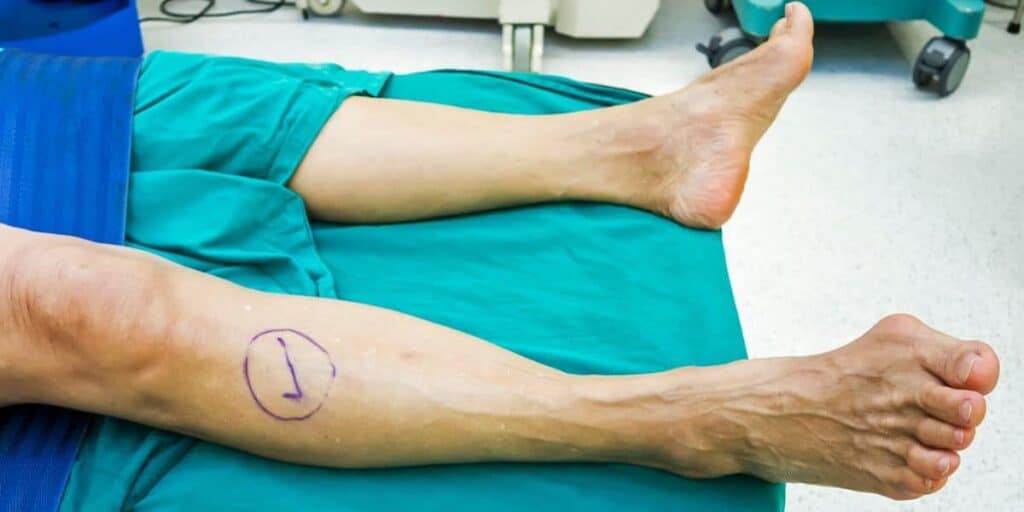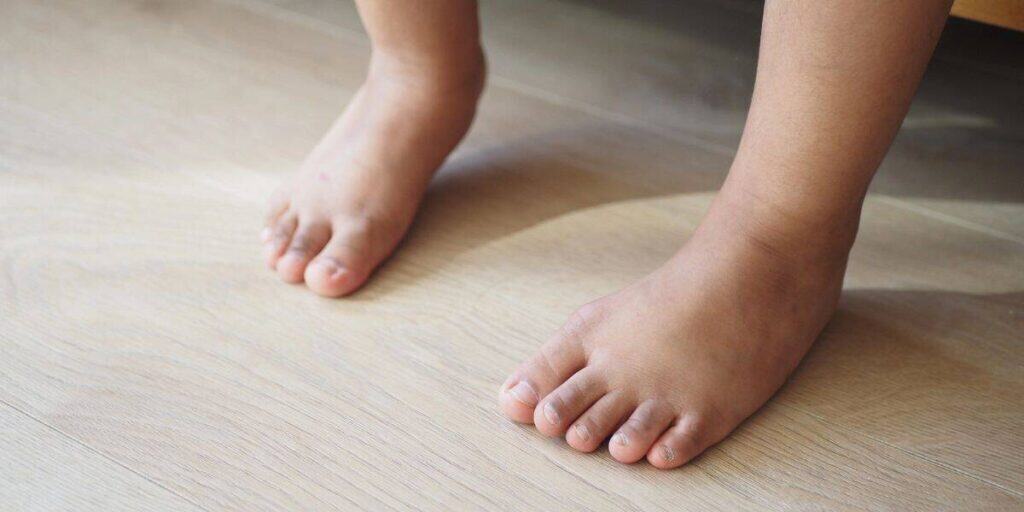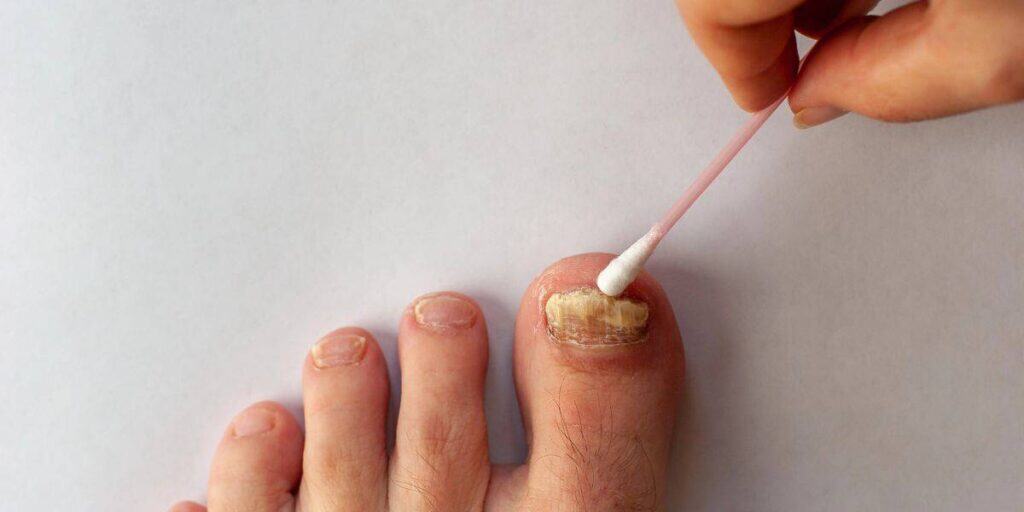Doctor Bob Baravarian explains stem cell treatments and how they work.
Amniotic Fluid Allograft: a new treatment for the foot and ankle
Amniotic Fluid Allograft is a breakthrough treatment option that offers healing and pain relief without the risks of surgery, general anesthesia, hospital stays, or prolonged recovery and downtime from life.
Amniotic fluid injections are very effective in treating foot and ankle conditions and injuries, including those to the Achilles tendon, plantar fasciitis, joints, cartilage, ankle, and toe.
What is Amniotic Fluid Allograft?
Amniotic fluid allograft is an all-natural regenerative medicine treatment composed entirely of 100% amniotic fluid derived from a living, healthy donor. This fluid is rich in naturally occurring growth factors and can greatly aid in healing stubborn pain or injuries.
Replacing or “regenerating” human cells or tissues damaged by age, disease, or trauma can be effective with amniotic fluid injections because they are rich in growth factors that boost the regenerative process.
Some of the amazing benefits of Amniotic Fluid Matrix Allograft Injections are:
- Amniotic Fluid Allograft contains over 200 growth factors, collagen, protein, inflammation modulators known as cytokines, nutrients, and hyaluronic acid (which plays an essential role in lubrication and is also found in healthy joint fluid)
- It contains hyaluronic acid, which lubricates cartilage and promotes new cartilage growth
- It has high anti-inflammatory properties but does not contain steroids. The injections rely on naturally occurring anti-inflammatory agents, such as cytokines, which are small proteins released by cells that have a specific effect on the interactions between cells, on communications between cells, or the behavior of cells
- It has no threat of patient rejection
The use of amniotic fluid has been regulated by the FDA since 2003 and is considered safe, virtually painless, and non-controversial compared to stem cell therapy. This is because the amniotic fluid comes from healthy Caesarean section deliveries and not embryonic cells, blood cord donation, or removing any of your own blood or bone marrow to harvest stem cells necessary for stem cell therapy.
Even though Amniotic allograft injections do not contain live, viable stem cells, they do contain stem cell-derived factors, among others, that are included in stem cells. The effects are, therefore, like stem cell injections, but Dr. Baravarian does not need to harvest stem cells from his patient’s body.
In certain cases, these injections are covered by Medicare and some insurance plans.
What conditions can be treated with amniotic fluid injections?
Because the properties of Amniotic fluid have been found to enhance the body’s healing abilities for many orthopedic conditions, Dr. Baravarian has successfully used amniotic fluid injections for foot pain to treat:
- Achilles tendon injuries
- Tendonitis, ligaments, and other soft tissue damage
- Joint injuries, including damage to the cartilage
- Ankle pain
- Toe pain
- Bursitis
- Tissue regeneration
- Plantar fasciitis
- Tendinitis
- Sports injuries and sports medicine care
- Chronic pain relief
- Diabetic wounds
- Ankle arthritis
- Osteoarthritis
- Inflammation control due to its anti-inflammatory properties (instead of using cortisone)
How do amniotic fluid injections work?
Amniotic fluid injections are administered in the clinic, so there are no added expenses for the use of a surgery center. A small amount of amniotic fluid is injected near the site of damaged tissue, and it goes to work to stimulate the repair and regeneration of the tissue.
The beneficial properties of amniotic fluid include:
- Creating an oxygen-rich environment for healing
- Lubricating properties that allow the treated area(s) to move better
- Anti-microbial properties to prevent infection in the human body
- It contains an extracellular matrix (ECM). ECM is not present in platelet-rich plasma. ECM is especially useful for cell migration and attachment and signals the body’s local cells to assist in the repair process.
- Over 200 growth factors, collagen, protein, inflammation modulators known as cytokines, nutrients, and hyaluronic acid (which plays an essential role in lubrication and is also found in healthy joint fluid). These factors create an ideal environment for cellular growth and remodeling.
Are amniotic fluid injections safe?
Yes. Amniotic tissue products have been used therapeutically in health care for over 100 years and have been regulated by the FDA since 2003. Amniotic fluid is sterilized using gamma radiation to ensure maximum safety. It is tested according to the strictest federal guidelines to eliminate the potential for communicable disease. It also contains no umbilical cord blood or embryonic stem cells.
In addition, there is virtually no risk of patient rejection or allergic reactions. Side effects have been extremely rare because the amniotic fluid does not contain any antigens, which are what alert your body to the presence of a foreign substance.
Dr. Bob has participated in research studies for several years, exploring regenerative medicine modalities, including amniotic fluid allograft, stem cell injection therapy, and PRP. He has found them to be very effective treatments for the right conditions and patients.
How many treatments will be needed?
Most patients will see physical changes and experience relief within four weeks of the initial injection. Many patients who present with pain, inflammation, degenerative diseases, or strains report significant improvement after a single treatment.
Does amniotic fluid allograft cell therapy work for everyone?
Because each foot and ankle is unique, there is no “one size fits all” treatment that works for everyone. Each patient has a unique set of circumstances that can affect their healing potential, and not everyone is a suitable candidate for amniotic fluid injection.
If you are contemplating amniotic fluid treatment, you should see Dr. Bob, take a comprehensive medical history, and, if necessary, perform imaging studies to determine whether amniotic fluid injections would be beneficial for you and your condition.
What does amniotic fluid injection cost? Is an amniotic fluid allograft covered by insurance?
Until very recently, the answer was “no”, but Medicare recently announced that it would cover amniotic fluid injections for some conditions.
Additionally, some private medical insurance companies will also cover amniotic fluid injections on a pre-approval basis. Approval depends on the patient’s condition and whether the injections require administration under imaging guidance, such as ultrasound.
Why Dr. Baravarian is the best choice for amniotic fluid therapy and regenerative medicine
Dr. Bob firmly believes most conditions should initially be treated conservatively and non-surgically using minimally invasive techniques whenever possible. In his experience, “conservative treatments” deliver excellent results, well over 80% of the time.
Occasionally, when conservative treatments do not work as well as expected, other advanced non-invasive treatments become necessary.
That is when regenerative therapy, such as Amniotic Fluid Allograft, amniotic stem cell therapy, Platelet-Rich Plasma therapy (PRP therapy), or Prolotherapy (a treatment that depends on the nature of your injury).
Dr. Bob has decades of experience utilizing regenerative medicine and is an internationally recognized expert in the field, specializing in the treatment of foot and ankle conditions.
If you would like to learn more about whether any regenerative medicine therapies might be right for you, schedule a consultation with Dr. Baravarian by calling (855) 557-5400 or make an appointment online now.
Dr. Bob Baravarian is conveniently located in Los Angeles, near Cedars-Sinai Medical Center, providing expert foot and ankle care for patients throughout Southern California.












